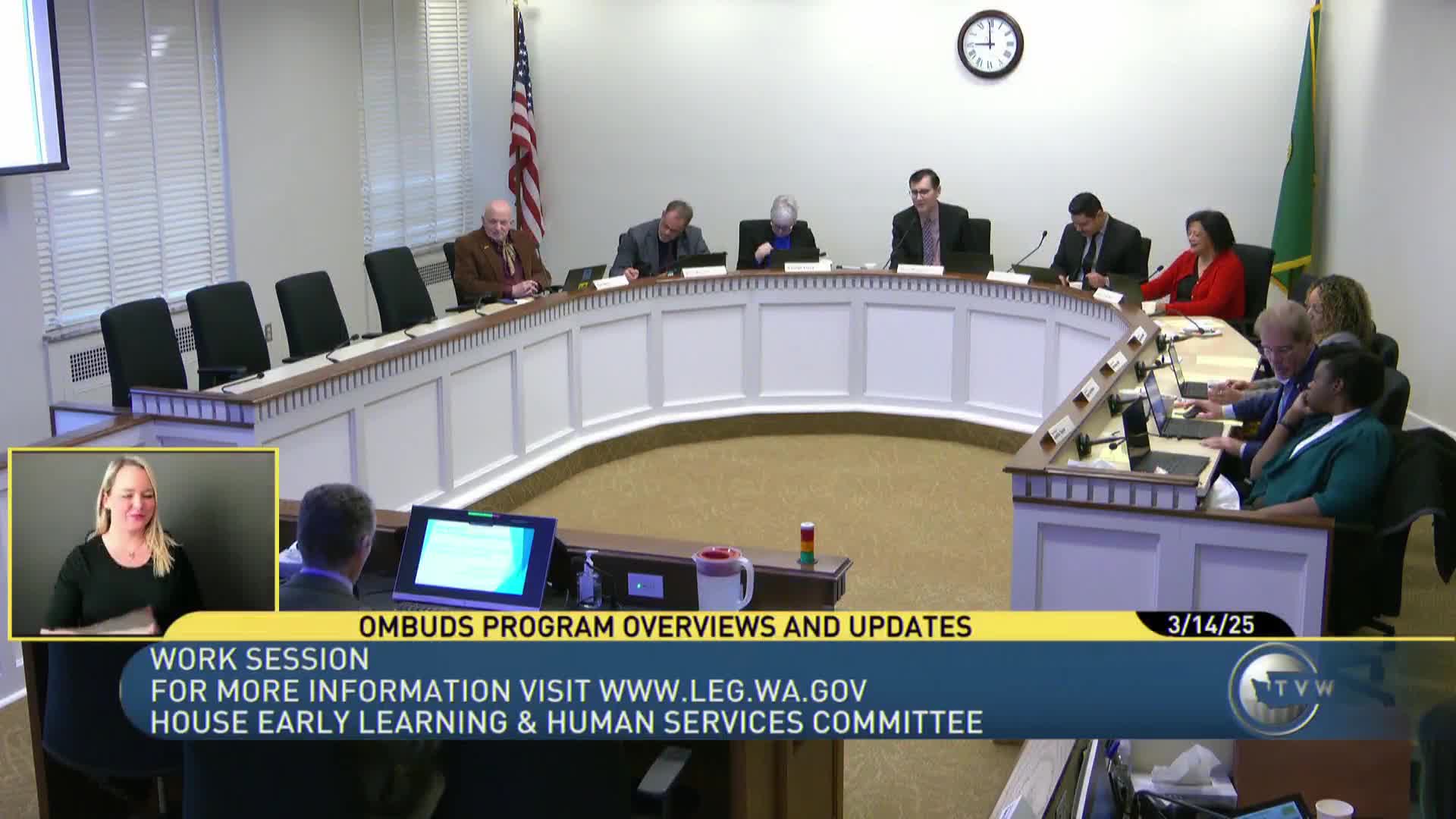Family and Children's Ombuds reports declines in placement exceptions and flags juvenile rehabilitation and fentanyl incidents
Get AI-powered insights, summaries, and transcripts
Subscribe
Summary
The Office of the Family and Children's Ombuds updated the committee on complaint trends, long‑standing concerns about placement exceptions and recent complaints about juvenile rehabilitation facilities; the office also reported a sharp increase in fentanyl‑related critical incidents involving young children.
Patrick Dowd, director of the Office of the Family and Children's Ombuds (OFCO), briefed the committee on complaint trends and systemic issues in Washington's child welfare system.
Dowd said OFCO is an independent oversight office located in the governor's office with six full‑time employees and an annual budget of about $902,000. He told members the office receives fewer complaints than earlier in the decade, which OFCO attributes in part to fewer children in out‑of‑home care.
On placement exceptions—temporary arrangements the department historically used when a licensed placement was not available—Dowd said the number of children experiencing placement exceptions has fallen from over 300 to a little more than 200 and that the use of offices and hotels as temporary placements has been dramatically reduced. He said most placement exceptions are resolved within one to five days but that a small group of older youth with complex behavioral needs drive a disproportionate share of the remaining placement exceptions.
OFCO also described multiple complaints related to juvenile rehabilitation facilities, particularly Green Hill, alleging overcrowding, unsanitary conditions, limited rehabilitative programming and incidents of illegal substances and overdoses. Dowd said OFCO's statutory authority to investigate JR complaints is unclear in some instances and referenced pending legislation (Senate Bill 5032 in the session) that would clarify oversight authority.
Finally, Dowd highlighted a large increase in critical incidents involving fentanyl exposures to young children: OFCO documented two such cases in 2020 and 39 in 2023. He cautioned there is typically a reporting lag for the most recent year.
Committee members asked questions about staffing, budget and oversight; OFCO said it had not downsized and reiterated the office's role in investigations, monitoring and reporting systemic recommendations to the legislature and governor.
